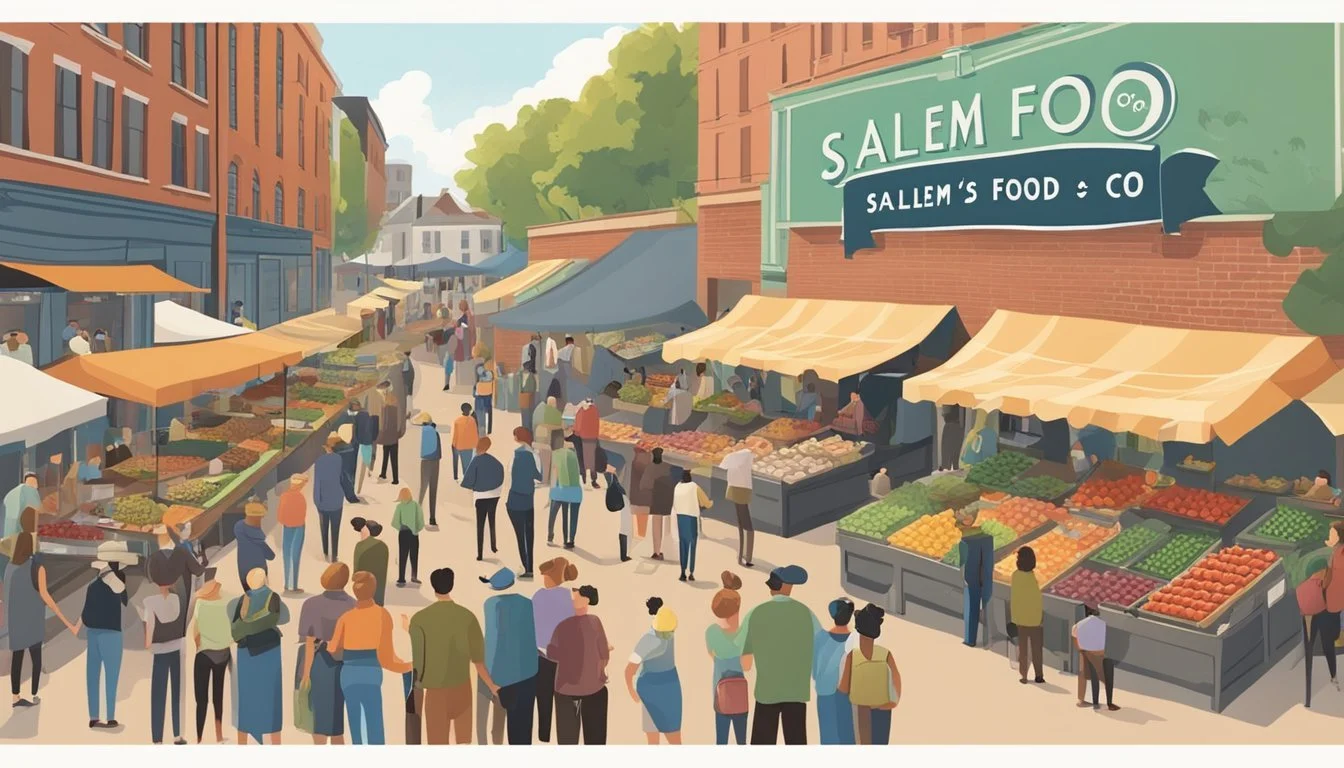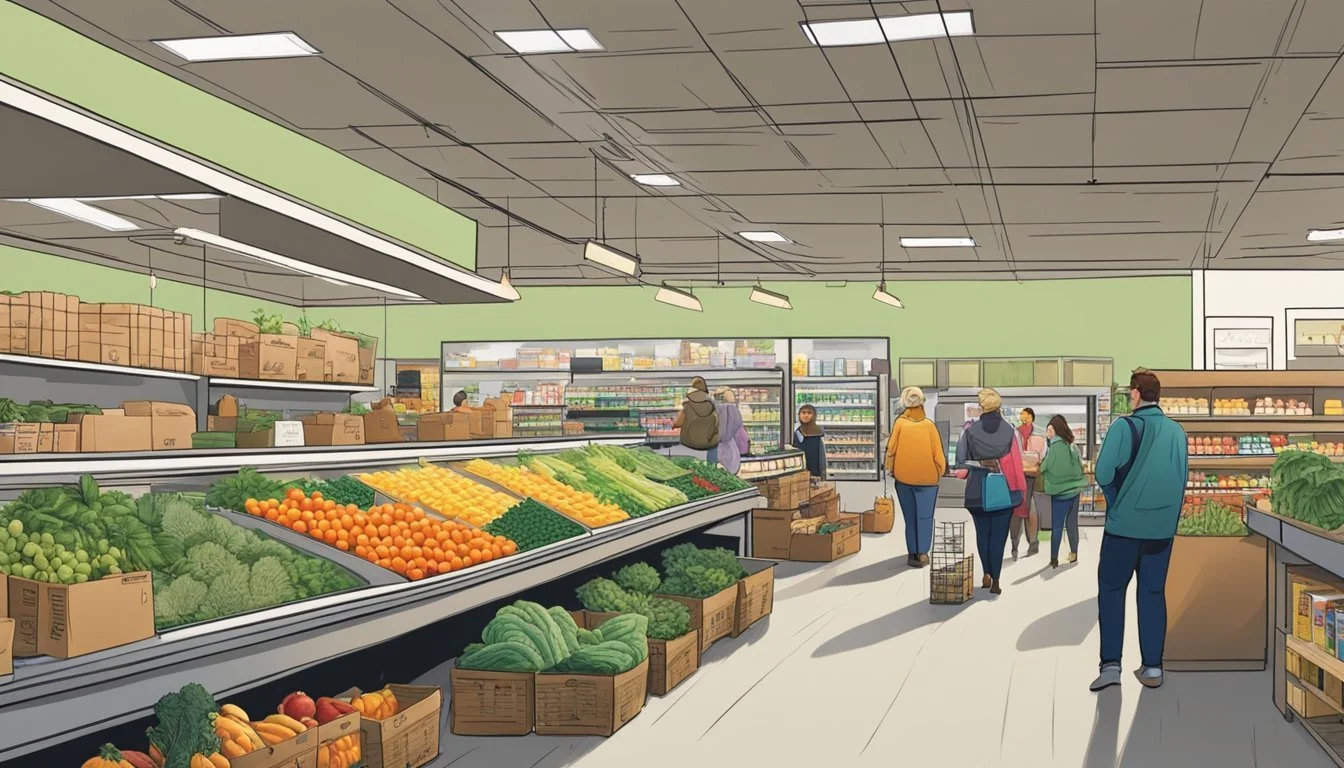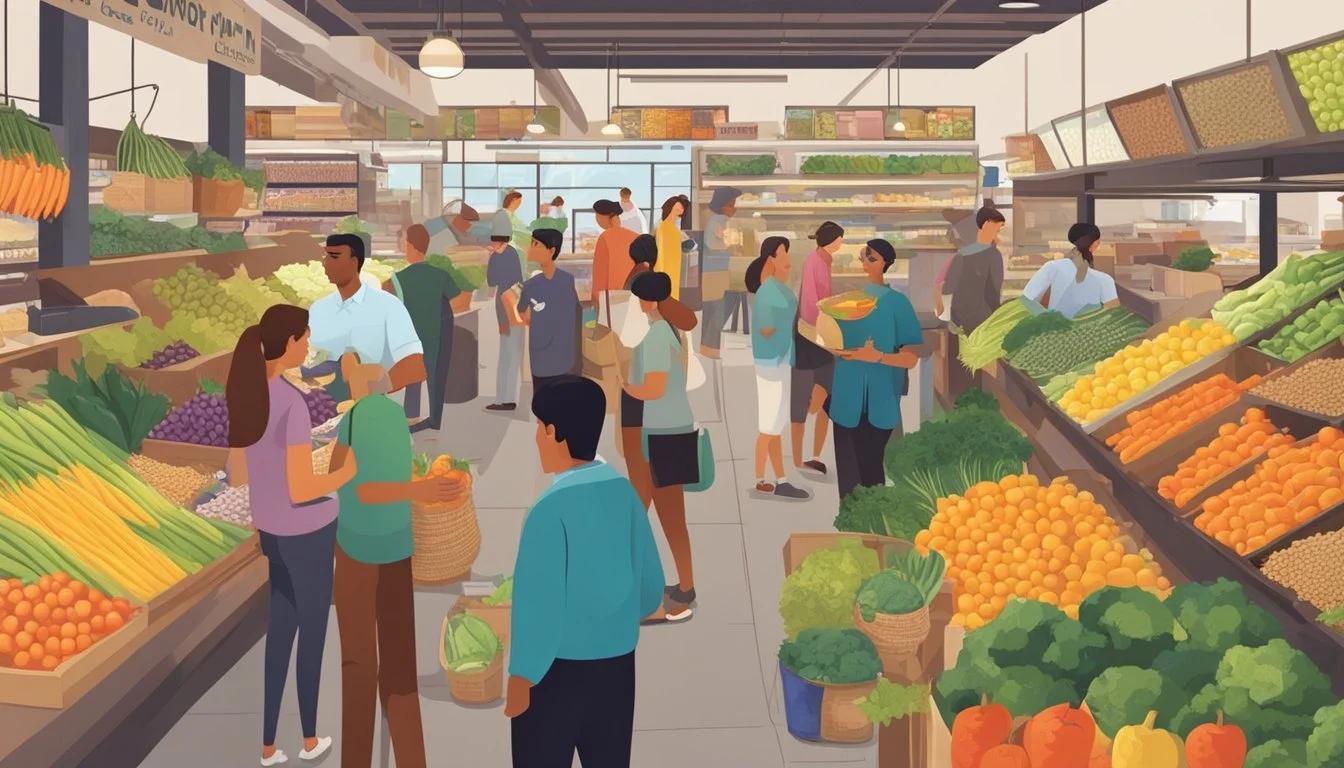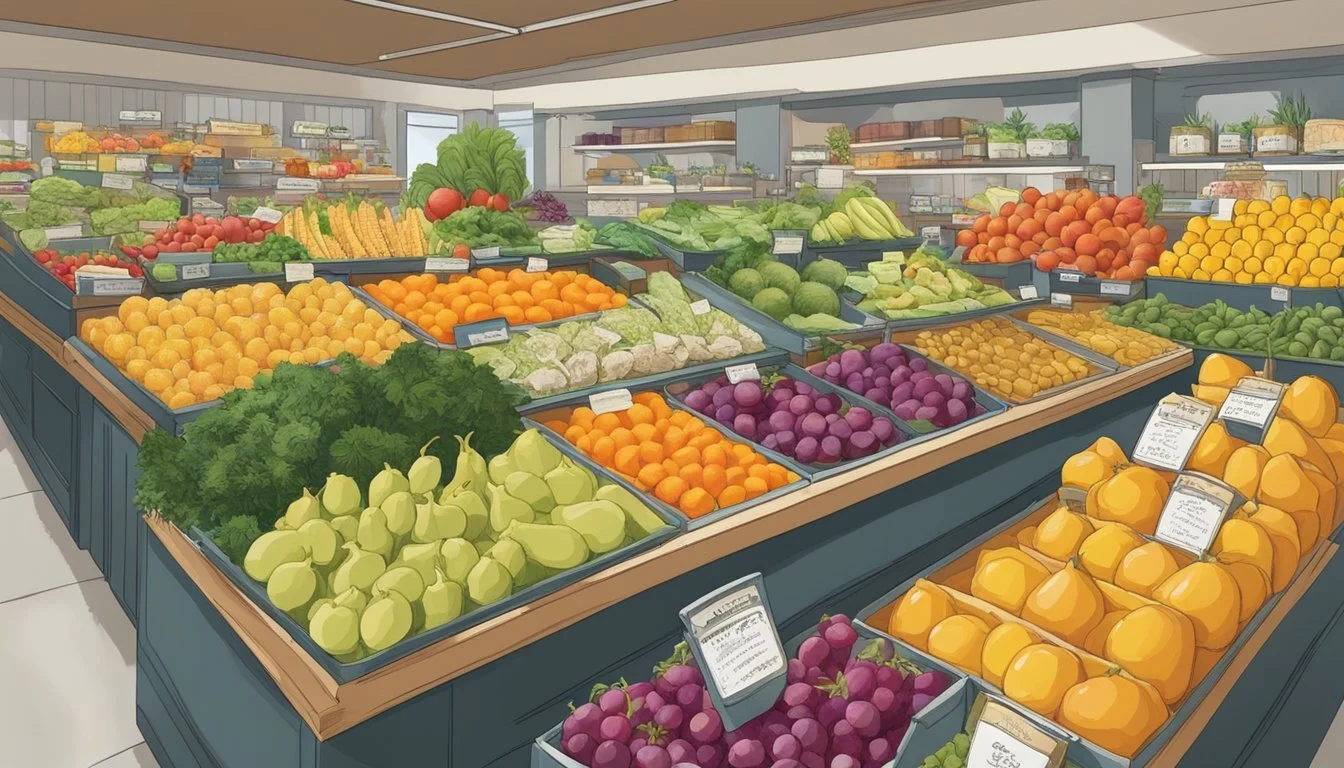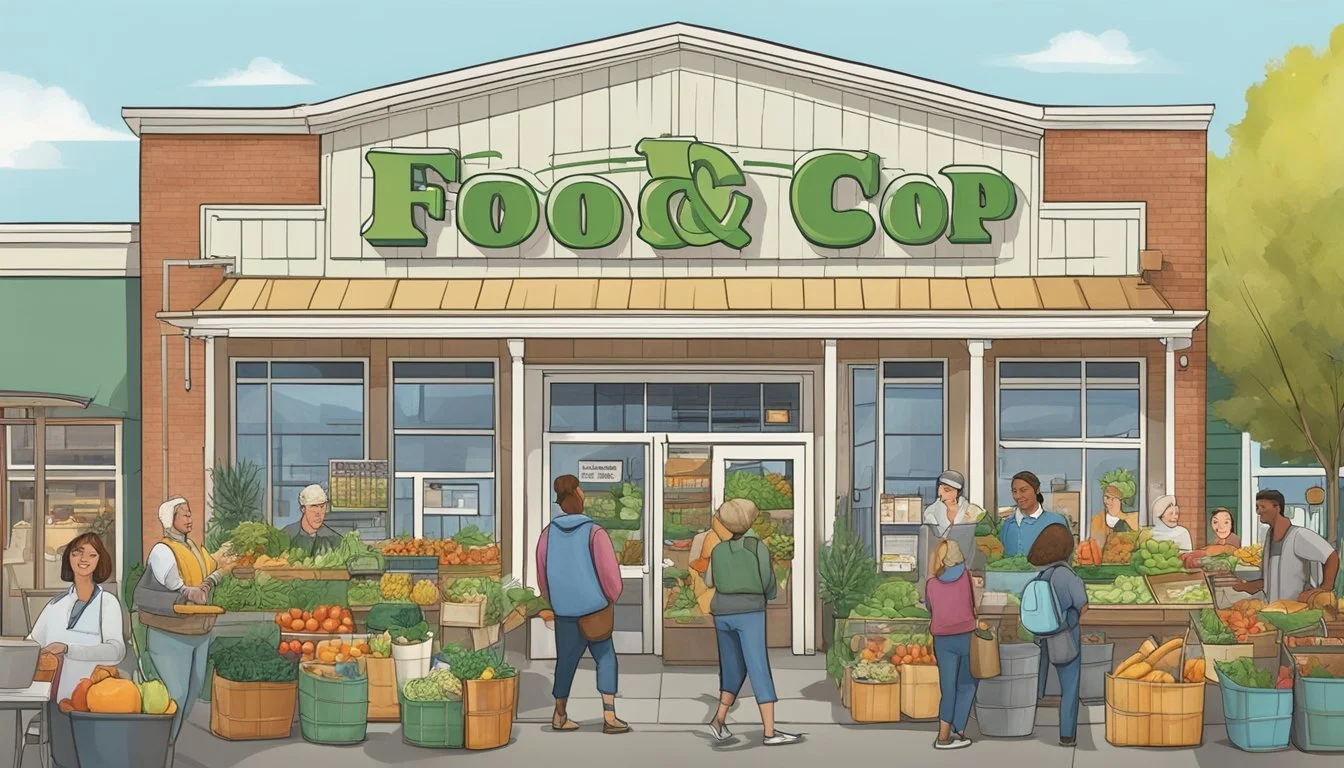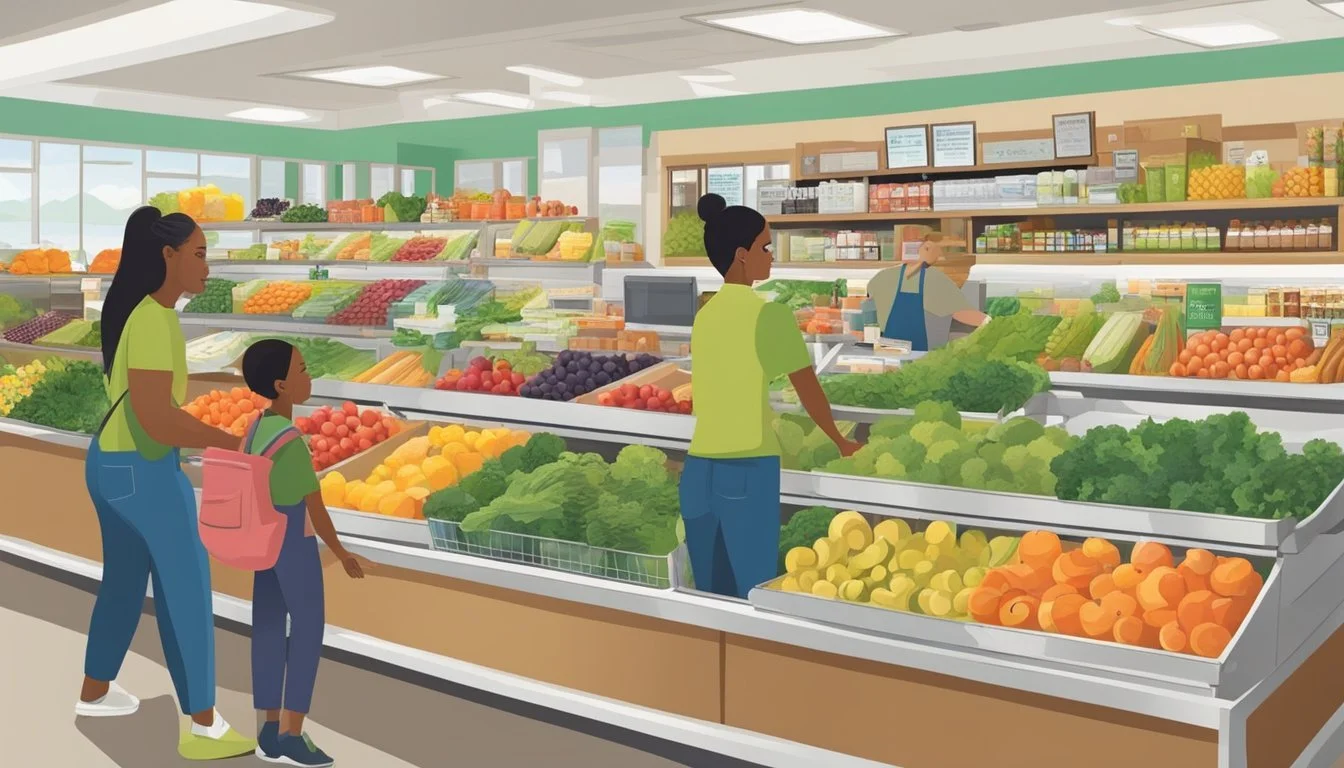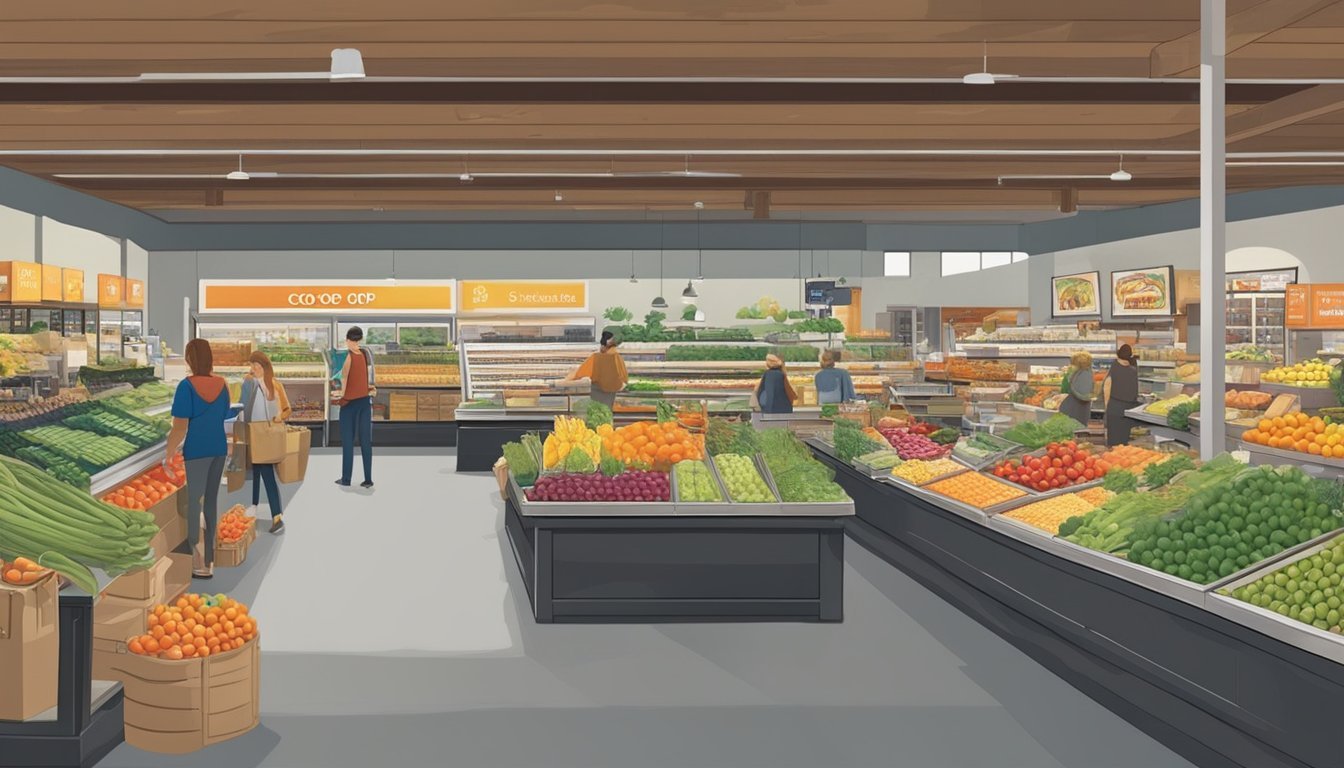Guide to Food Co-Ops in Salem, OR
Your Access to Local, Fresh Produce
Salem, Oregon, is a place where community spirit and a shared commitment to natural and organic products come to life through its local food cooperatives. These co-ops play a pivotal role in Salem's food scene, offering residents and visitors alike a chance to partake in a sustainable and health-conscious lifestyle. Embodying a sense of community focus, co-ops in Salem not only provide access to locally sourced and ethically produced goods but also serve as hubs for like-minded individuals seeking a deeper connection with their food and neighbors.
LifeSource Natural Foods stands out as a prominent example, with its large 10,000 square foot store and team of over sixty employees dedicated to supplying an extensive range of natural and organic products. The store demonstrates the defining principles of a co-op: a commitment to local growers and producers, fostering an environment that prioritizes consumer health, and a business model that reinvests back into the Salem community. These values resonate throughout the co-op landscape of Salem, infused in the ethos of establishments like the Salem Food Cooperative, which emphasizes cooperative governance and collaborative community involvement.
What is a Food Co-Op?
A food co-operative, commonly known as a food co-op, operates on a member-owned model that allows individuals within a community to have an active role in their grocery store's operations and decision-making processes. This model contrasts with corporate grocery chains by prioritizing community needs and egalitarian principles.
History and Philosophy of Co-Ops
Food co-ops in the United States emerged from the desire to establish equitable and democratically run grocery options. They focus on serving the community by fostering engagement and shared ownership among members. The philosophy revolves around the idea of collective action for mutual benefit, rooted in the historic cooperative movement that values democratic participation and economic equality.
Benefits of Membership
Members of a food co-op often enjoy several benefits, including:
A voice in governance decisions.
Access to local and often organic products at competitive prices.
Potential for dividends based on patronage.
Being part of a community that supports local growers and sustainable practices.
Cooperative Principles and Governance
Food co-ops abide by internationally recognized principles that ensure democratic control and economic participation. Generally, a Board of Directors, elected by members, governs co-ops, ensuring that operations align with member interests and cooperative values such as equality and solidarity.
Types of Food Co-Ops
Food co-operatives can vary significantly and may include:
Buying clubs for bulk or discounted items.
Full-service grocery stores emphasizing organic and natural foods.
Worker-owned cooperatives, where employees are the members and share in the governance.
Each type adheres to the core cooperative value of meeting member needs through shared ownership and community-oriented service.
Navigating Salem's Food Co-Ops
Salem's food co-ops offer a unique shopping experience that reflects the community's commitment to local, sustainable, and wholesome products. Each co-op has its distinct character and selection, providing residents and visitors with a range of options to match their culinary and health-related needs.
LifeSource Natural Foods
LifeSource Natural Foods stands out as a staple for organic produce and eco-friendly products within Salem, Oregon. Having built a reputation for its wide array of local and organic offerings, shoppers can find everything from fresh fruits and vegetables to health supplements. The store emphasizes community health and also provides educational resources related its product offerings.
The Wild Pear
The Wild Pear offers a distinctive blend of gourmet food items and local products, catering to those seeking both quality and variety in downtown Salem. As a restaurant and catering service, they exemplify the farm-to-table concept, sourcing ingredients from nearby growers. While not a traditional food co-op, The Wild Pear aligns with similar values of supporting local producers and fostering a sense of community.
Salem Food Park
Salem Food Park is an innovation in community-sourced dining and shopping, designed to bring together food trucks, local vendors, and produce stands in one central location. This collective area promotes fresh, local fare and supports Salem's small businesses by providing a platform that's easily accessible to both residents and visitors of Salem, OR.
Products and Services Offered
In Salem, OR, food co-ops offer a cornucopia of products catering to individuals seeking fresh, high-quality, and sustainably sourced groceries. These establishments focus on organic and locally grown options, ensuring that consumers receive nutritious and eco-friendly products.
Local and Organic Produce
Food co-ops in Salem prioritize a variety of local and organic produce, guaranteeing a selection of fruits and vegetables that support regional farmers and minimize environmental impact. Consumers can find a range of organic products such as:
Vegetables: Seasonal and year-round options, from leafy greens to root vegetables.
Fruits: A selection including local berries, orchard fruits, and exotic varieties when available.
Sustainably Sourced Meats and Dairy
Shelves and refrigerated sections are stocked with humanely raised meats and sustainably sourced dairy. The offerings typically include:
Meats
Beef
Pork
Poultry
Dairy
Milk
Cheese
Yogurt
These products come from animals that are raised in humane conditions without unnecessary antibiotics or hormones.
Deli and Prepared Foods
Co-ops often feature a deli counter, providing a variety of prepared foods. Ready-to-eat options are crafted with the same attention to quality as their grocery items, offering:
Freshly made sandwiches.
Hot soups.
Diverse salads, often with organic ingredients.
Bulk Foods and Dry Goods
For those interested in eco-friendly shopping and reducing waste, bulk bins are filled with an array of dry goods. These might include:
Whole grains
Pasta
Nuts and seeds
Spices
Purchasing in bulk allows consumers to buy exactly the amount they need and is often more cost-effective.
Special Dietary Options
Food co-ops in Salem, Oregon cater to diverse dietary preferences and restrictions, ensuring an inclusive shopping experience. They source products from local farms and offer an array of ingredients for a variety of specialized recipes.
Vegan and Vegetarian Selections
Food co-ops in the region are known for their commitment to plant-based diets, providing vegan and vegetarian customers with ample choice. LifeSource Natural Foods, for instance, boasts a 10,000 sq ft store filled with natural and organic products. Here, one can find ingredients for making wholesome vegan sandwiches, pizzas, tacos, and pasta dishes using locally-sourced produce.
Sandwiches: Vegan deli slices, various plant-based cheeses, and organic vegetables
Pizza: Dairy-free cheese, whole wheat, and gluten-free crust options, vegan toppings
Tacos: Assorted beans, meat substitutes, fresh salsa, and guacamole
Pasta: Selection of egg-free pasta, including whole grain and gluten-free varieties, complemented with rich, vegan sauces
Gluten-Free and Allergy-Friendly Foods
These co-ops also prioritize gluten-free and allergy-friendly options. Their shelves are well-stocked with gluten-free staples, making it easier for those with celiac disease or gluten intolerance to shop without concern. Food co-ops often provide clear labeling to help customers avoid allergens.
Gluten-Free: Bread, pasta, and baking mixes; non-GMO and organic certification offer additional assurance.
Allergy-Friendly: Soy-free, nut-free, and dairy-free alternatives, as well as items free from artificial preservatives and colors.
Consumers who shop at food co-ops in Salem have access to ingredients that support their dietary choices while enjoying flavors that do not compromise on taste or quality.
Seasonal and Local Specialties
Salem, Oregon, thrives on a tapestry of local fares that highlight the region's agricultural diversity and artisanal creativity. Its food co-ops proudly offer a selection of these specialties, ensuring that the community enjoys the freshest seasonal produce, handcrafted cheeses, and notable local libations.
Willamette Valley Wines and Craft Beer
Willamette Valley, renowned for its vineyards, produces some of Oregon's finest wines—notably Pinot Noir, which captures the essence of the valley's unique terroir. Seasonal releases and wine-tasting events are commonplace at Salem's food co-ops. They often feature biodynamic and organic wines from local vineyards. The valley's craft beer scene is equally vibrant, with breweries and cideries providing an array of seasonal brews and hard ciders that spotlight local hops and apples.
Farmers' Market and Seasonal Events
The Salem Farmers' Market remains a focal point for seasonal, locally-grown produce. The market showcases farm-fresh fruits and vegetables, while food co-ops frequently collaborate with these local farms. They host seasonal events that celebrate the region's bounty, providing opportunities for residents and visitors to engage with food producers and learn more about sustainable agricultural practices.
Local Artisan Cheeses and Chocolates
Oregon's dairy farms contribute to a rich selection of artisan cheeses, ranging from sharp cheddars to delicate bries, all made with milk from local herds. Food co-ops in Salem take pride in their selection of these handcrafted cheeses, pairing them thoughtfully with Oregon-produced chocolates that compete on a global scale for their quality and unique local flavors. Offering these fine goods, Salem's food co-ops not only indulge the palates but also support the local artisan community.
Community Engagement and Education
Food co-ops in Salem, OR, not only provide locally sourced and affordable food but also play a crucial role in community engagement and education. They offer various programs to enhance the community's experience with food and nutrition.
Workshops and Cooking Classes
Food co-ops often host workshops and cooking classes that facilitate the sharing of recipes and cooking techniques. These sessions are typically designed to:
Teach participants how to prepare healthy, locally sourced meals.
Provide hands-on experience in making recipes that are both nutritious and delicious.
Community Outreach Programs
Community outreach programs connected with food co-ops serve as a critical link between the co-op and the broader community. They focus on:
Educational initiatives: Aim to increase understanding of sustainable food practices and the benefits of consuming locally sourced food.
Event participation: Food co-ops may get involved in local community events to promote healthy eating habits and co-op membership.
Volunteering Opportunities
Volunteering at a food co-op can offer residents a chance to contribute to their community, learn about food systems, and gain valuable experience. Volunteer opportunities often include:
Assisting with daily operations of the co-op, such as stocking shelves and customer service.
Helping with educational programs to spread knowledge about organic foods and co-op principles.
Shopping Tips and Best Practices
When shopping at food co-ops in Salem, Oregon, one can maximize savings, make informed choices, and contribute positively to the environment. These co-ops offer a variety of locally produced foods and typically provide options to buy in volume, which can be more affordable and sustainable.
Maximizing Affordability
Buying in Bulk: Purchasers should take advantage of volume discounts often available for many products at food co-ops. It's cost-effective to buy larger quantities of non-perishable items such as rice, beans, and grains. Members can typically enjoy further savings and discounts on certain shopping days or through special programs.
Seasonal Purchases: Shoppers should focus on in-season, locally produced foods, which tend to be priced lower than out-of-season imports. Additionally, members frequently receive discounts, and some co-ops allow payment in installments for memberships, increasing affordability.
Understanding Labeling
Identifying Local Products: Food co-ops often emphasize locally sourced products. Shoppers should look for labels indicating local origins to support regional farmers and producers.
Organic vs. Conventional: Labels can also provide insight into growing practices, like organic certification. Understanding these distinctions helps shoppers make decisions aligned with their health and ethical preferences.
Reducing Waste and Supporting the Planet
Reusable Containers: One should bring their own containers when shopping in a food co-op to minimize packaging waste. This practice supports the planet by reducing landfill contribution.
Archive and Share Information: Food co-ops often act as knowledge archives for sustainable practices. Shoppers are encouraged to engage with provided information and share their insights on waste reduction and planet-friendly habits within their communities.
Membership and Support
In Salem, Oregon, food co-ops offer a unique opportunity for consumers to become members and engage in a community-oriented marketplace. Through membership, individuals support local farms and businesses, while also enjoying various member benefits and discounts.
How to Become a Member
Individuals interested in becoming members of a Salem food co-op typically need to pay a membership fee. The specific costs and processes can vary by co-op. For instance, LifeSource Natural Foods in nearby Portland offers membership without mandatory work shifts, suggesting that similar co-ops in Salem might follow that model. Customers often have the option to purchase a membership share which affords them voting rights and further involvement in the co-op's governance.
Supporting Local Farms and Businesses
Members of food co-ops directly support local farms and businesses by purchasing their products. This farm-direct approach ensures that the bulk of the revenue goes to the producers, fostering a sustainable local economy. By providing a stable volume of sales, food co-ops enable local farms to operate confidently, knowing they have a consistent market for their produce.
Member Benefits and Discounts
Membership in a Salem food co-op comes with a variety of benefits and discounts. These may include:
Special Order Discounts: Members can order cases or quantities of select items, often at a discount, for example, 15% off special order cases.
Appreciation Discounts: Periodically, members receive appreciation discounts, which can happen multiple times a year.
Governance Participation: Members have the right to vote in annual elections, run for the Board of Directors, or join committees.
Membership Reciprocity: Some co-ops offer small discounts to members of other co-ops.
It is essential for consumers interested in membership to inquire directly with the Salem food cooperative of their choice for the most accurate and current information on membership benefits and any possible waitlist for new members.

